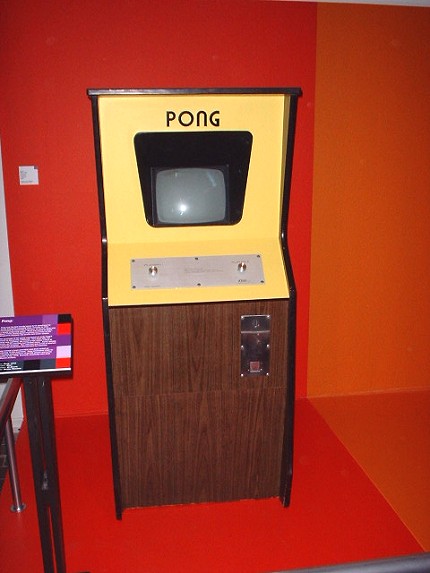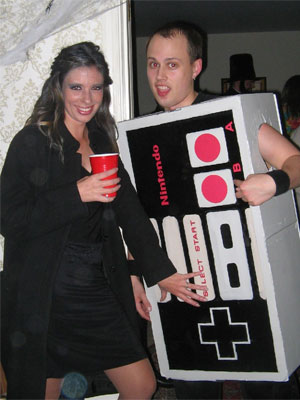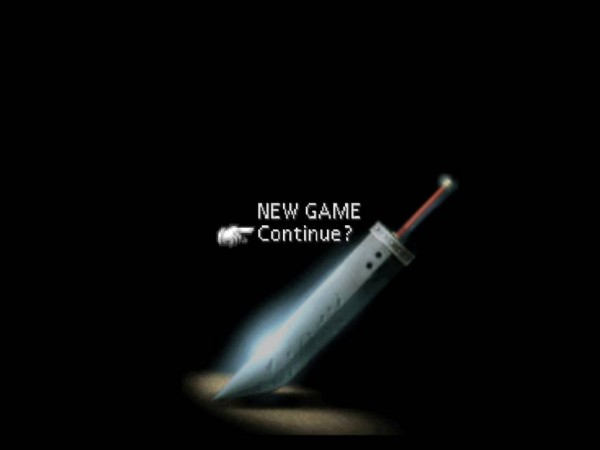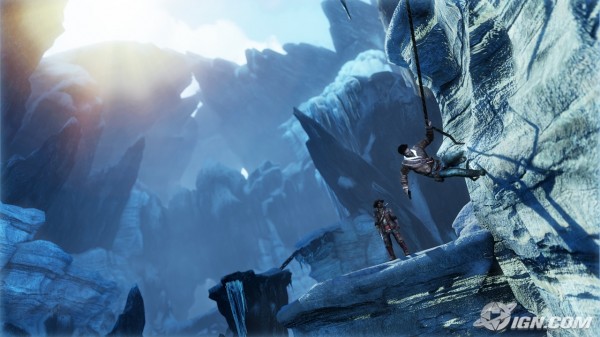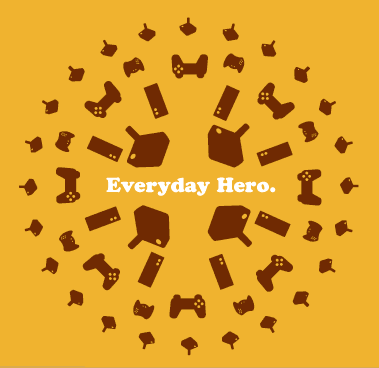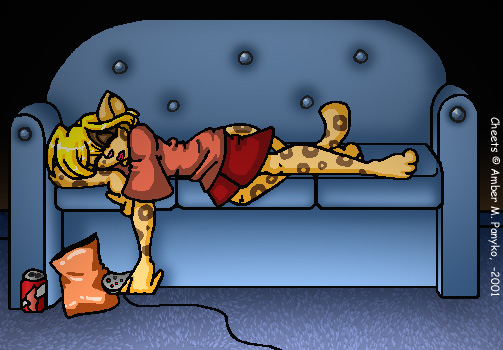This post has not been edited by the GamesBeat staff. Opinions by GamesBeat community writers do not necessarily reflect those of the staff.
A few weeks ago on yet another typical Monday at work, I found myself distracted by everybody’s favorite free dating site. I know what your thinking. What does this chump’s superbly lame, Internet-based dating methods have to do with gaming? Glad you asked!!! It just so happened that I ran across the profile of a cute and quite opinionated bachelorette, which is where I saw this:
Now, I’m an open-minded person, so no hard feelings. This lovely lady is entitled to her opinion and I hope she is perfectly happy. What made me pause was the question that popped into my brain after I closed my browser: Why do we, as gamers, spend hours and hours (followed by the occasional few more hours) guiding pixels around a screen with nothing more to show for it than our own satisfaction, a handful of virtual trophies and maybe a few hard-fought multiplayer victories? For me, it’s a surprisingly difficult question to answer because my obsession with video games often reaches levels that are not particularly justifiable.
But it’s there. Why?
To find the answer, I traveled back to prehistoric times. That’s right, it’s 1972 and a weird, boxy looking thing called Pong is starting to pop up all over the country.
The sucker caught on to the tune of 19,000 units and with Space Invaders, Pac-Man and Donkey Kong quick on its heels, the arcade golden age had begun. High scores were the order of the day and placing one atop your favorite machine was a kind of a huge deal. Everybody – gamers and the general public alike – they were all captivated by a new, interactive technology, but that was just the initial fascination. What kept people coming back was something far more complex and meaningful. It was the competition. It was the sense of accomplishment. It was the common bond among friends and strangers. It was a community. Now we’re getting somewhere.
See, while some folks seem to disagree (such as bachelorette #1), the beautiful truth for us gamers is that playing video games has always been about so much more than, well, playing video games. Sure arcades are pretty much extinct, but leaderboards still exist, the sense of community is stronger than ever, and there are a slew equally warm and fuzzy intangibles that go along with being a gamer that make it, in my opinion, the greatest hobby on planet Earth.
Let's start with the memories. Just as the noobs of gaming spent roll after roll of quarters on their strange and newfangled addiction, little did they know they were making deposits into an inexhaustible bank of nostalgia. The memories of playing video games are so fond and so strong, they’ve helped shaped both the video-game industry as it exists today, and even pop culture itself. It’s why so many old-school franchises are still popular and why every console now has downloadable classics. It’s why the yellow circle known as Pac-Man makes us smile more than the yellow circle known as a smiley face. It’s why Final Fantasy has hit an unheard-of lucky number 13 and why showing up to a costume party dressed as Mario or Princess Toadstool still gives you a guaranteed dose of instant awesome.
Even so, our passion runs deeper. Deeper than the memories and deeper than the good ol’ days. Today we have things like multiplayer. I don’t need to go into detail about what makes playing with friends so awesome, but let’s examine. Multi = many. Play = awesome. Many + awesome = my head just exploded. That’s as far as my math skeelz go, for real.
While the social aspect of gaming has greatly contributed to the industry’s success, particularly in mainstream circles, it’s not why I believe we hardcore gamers turn this hobby into a lifetime gig. Not even close. After all, most games to this day are based around a solo experience (sports/party/music games being exceptions. RIP Guitar Hero.). No matter how many capture the flag matches I play, it’s the time I spend on my own that you’ll find me at my most captivated. Even MMORPGs, while built on communities, are best enjoyed when it’s just you, your computer, and your finest highly caffeinated beverage. This is the heart of true, die-hard gaming. The part that is, at it’s core, a sanctuary for us all, and damned fun one at that.
- Video games afford us a retreat from bedtimes, from work, from talking about the weather for no apparent reason, from the bully who pushed us around at school, from pure boredom and maybe, just maybe, they even provide a break from ourselves. Now, some might say that taking a break from real life on a daily basis to play something as unproductive as a video game is just plain irresponsible. But answer me this: What’s more irresponsible? Taking the hours we can afford to do something we just plain-old love, or taking no breaks at all to one day forget that life doesn’t always have be taken so damned seriously?
Personally, I choose to play.
And how lucky we are to have such amazing places to explore. In the greatest games of our time, each locale is often as beautifully detailed and jaw-dropping as anything our imaginations could ever construct. Seriously, graphics today are getting ridonkeykongulous (That means they're really really good). But even when graphics weren’t what they are now, turning on your N64 to play Ocarina of Time was as good as activating your own personal teleportation device with the destination set to Hyrule Castle. Exploring other galaxies, digging through hidden temples, slaying the beasts of far away kingdoms, intentionally hitting Alex Rodriguez with a 90mph fastball right in the jewels. We get to do it all.
Sure we could fill our time and our shelves with books and movies (as most of us do), but they’re as linear as it gets. You can’t decide where the pages or the camera will take you next. As for video games, deciding where to go next is what makes sandbox games so sandboxy and survival-horror games so wiz-in-your-shorts horrifying.
Keep in mind, while storytelling in games has come a looooooooooong way, I’m not suggesting that the characters and stories in video games are as deep, involved or laced with meaning as those in the greatest works of literature or film, but they don’t need to be. In every video game there’s one character that makes the experience as deep as it will ever need to be: you. You are the hero. You can be the funny, charming and audacious treasure hunter named Nathan Drake or the quiet, efficacious yet beautiful bounty hunter known as Samus Aran. Either way, when the end credits roll, it's you who got them there. This creates a partnership between players and characters that is truly special and it’s why, I think, so many video game characters resonate so strongly with those who've stepped into their shoes, high-jump boots, or whatever else they strap on their polygonal little feet.
Recently, developers have taken even more liberties that filmmakers and authors may never enjoy. Those who are acquainted with Commander Sheperd of Mass Effect know that Bioware forced players to make life-altering decisions for our hero such as which of his (or her) comrades lives or dies. Players who enjoyed Infamous got to decide whether to be the nice guy who saves Empire City or the villain who tears it to shreds. Each game left us with a protagonist (or antagonist) who was actually shaped by our own decisions and who became a reflection of our moods, feelings and ideas. I have great respect for the Melvilles and the Twains, the Spielbergs and the Tarantinos, but as far as I know, none of them ever pulled that one off.
I would be remissed not to mention that this amazing pastime (if that term even does it justice) can also be one of the most faithful, go-anywhere companions imaginable. Whether you own a Nintendo DS, a Sony PSP or both, there are hundreds of characters, destinations and plot-twists waiting for us in our pockets, backpacks and purses. It's how waiting for your number at the DMV not only becomes tolerable, but entertaining. Unless of course you're sitting next to that hairy guy in the tank top with horrible B.O. Not even the 3DS or NGP can help us there.
Whether we're out and about or chilling out at home, we get to explore gorgeous, breathing, reality-defying places. In a week, we can go from a naive, unassuming no-name to world-saving, level-50 badass. We get to participate in deep, involving stories in such a way that no other form of entertainment has yet to duplicate.
And to think, some people wonder how we can actually play these things for eight hours straight.
We don’t get much in the way of material gain from these virtual adventures, but they do provide an amazing sense accomplishment – one that true non-gamers may never understand. I can't say I blame them, but damned if I don't love snatching up virtual trophies. I’m not even a hoarder, but I'd rather have a fake platinum trophy than a real plastic one because, ironic as it sounds, I can share the fake ones.
And that, my friends, brings us back to where we started on this examination of why we game. To where you are at this very moment: the community. It’s a group of people who not only understand this otherwise inexplicable fascination, they share it. I can say from personal experience that this community is stronger than most. We see the similarities in one another, not the differences. When we run into each other in either the real or virtual world, we instantly recognize that our love for gaming is genuine, enduring and most importantly, worth every second.

